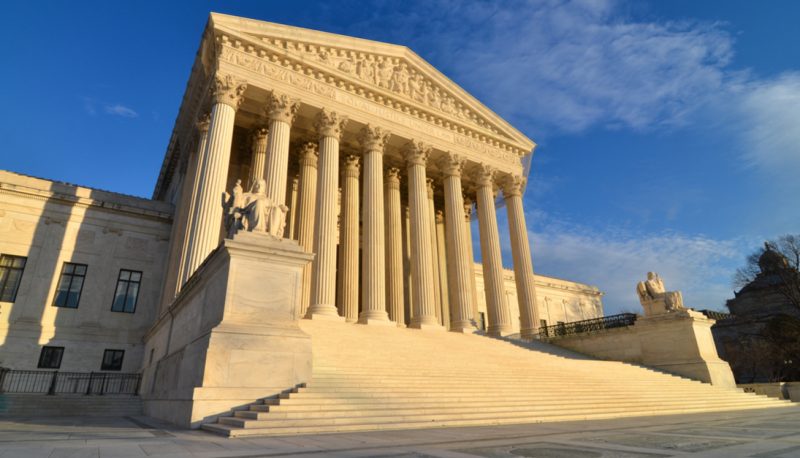“Confirmed Judges, Confirmed Fears” is a blog series documenting the harmful impact of President Trump’s judges on Americans’ rights and liberties. Cases in the series can be found by issue and by judge at this link.
Trump Eleventh Circuit judge Barbara Lagoa, agreeing with the mining industry, tried in dissent to invalidate a Mine Safety and Health Administration (MSHA) rule promulgated during the Obama Administration to better protect mine workers from safety hazards. The majority rejected Lagoa’s arguments and upheld the rule, which the Trump Administration had tried to weaken, in its January 2021 decision in National Mining Ass’n v United Steel Workers.
In 2016-17, at the end of the Obama Administration, MSHA promulgated a new rule designed to strengthen requirements concerning inspection of mines and notification to miners and recording of safety problems. The rule was challenged by the mining industry, but that challenge was put on hold as the Trump Administration tried to weaken the rule and workers and their unions challenged the Trump actions. Despite the dissent of Trump judge Greg Katsas, the DC Circuit invalidated the Trump actions and restored the Obama rule, so that the industry challenge to the tougher Obama rule went forward where it was filed, in the Eleventh Circuit. Because of concerns about the Trump Administration’s defense of the rule, several unions sought and were allowed to intervene to help defend it.
In a 2-1 decision written by Judge Robert Anderson, the Eleventh Circuit rejected the industry attack and upheld the mine safety rule. The majority explained that MSHA was seeking to improve a 1979 standard concerning mine inspections and held four public hearings and received 79 comments on its proposal. The majority found that the final rule “plainly enhances mine operators’ obligations with an eye toward augmenting miner safety.” While the 1979 rule required one inspection during each shift and corrective action as necessary, the majority continued, the new rule requires the examination to occur “before each shift”, with prompt notification to miners and better recordkeeping as well as corrective action. The majority concluded that it was clear that MSHA’s experience and expertise, as well as the administrative record that included information on 16 fatal mine accidents, 12 of which concerned problems that mine operators “knew of but failed to correct,” provided “ample support” for MSHA’s rule.
Trump judge Lagoa dissented and argued that the rule should be invalidated. She accepted mining industry arguments that the rule was “arbitrary and capricious” because it “lacks any rational connection to the evidence offered,” even though she conceded that court review under that standard should be “highly deferential” to the agency. Lagoa maintained that MSHA had relied on the 16 fatal accidents and its own expertise in a “conclusory” manner, without specifically linking them to the particular new requirements it was imposing. This argument applied, Lagoa asserted, to all three of the enhanced rule requirements – the mandate to conduct inspections before shifts begin, to notify miners promptly of problems, and to keep better records. She complained that MSHA had failed to reference its 2010-2015 study of past accidents in its section-by-section analysis of the rule, and she relied heavily on a 2010 DC Circuit ruling that rejected MSHA’s general reliance on its “knowledge and experience” to justify a different rule.
The majority explained what was wrong with Lagoa’s arguments. Contrary to her claim, the majority noted, it had in fact considered the 2010 DC Circuit case and found, unlike the situation in that ruling, that MSHA had shown “what” its experience was and “how it informed the determination” with respect to its changes in all three areas of the previous rule. The agency was well within its discretion, the majority wrote, to determine that “only an examination and notice before work begins could alert” workers to “hazards so they can take protective measures.” As to the 2010-2015 study, the majority pointed out, MSHA had “expressly referenced” the study in the background section of the final rule, so that the reference need not be “repeated” later. Overall, the majority concluded, the rule’s “impact on miner safety plainly improves on the 1979 standards” and it is “not arbitrary and capricious.”
After years of litigation and attempts to backtrack by the Trump Administration, therefore, MSHA’s important rule on mine safety inspections should now go into effect. If it had been up to Trump judge Lagoa, however, that rule would have been eliminated. Her opinion may well provide a preview of how she and other Trump judges will review and seek to invalidate new rules under the Biden Administration.

